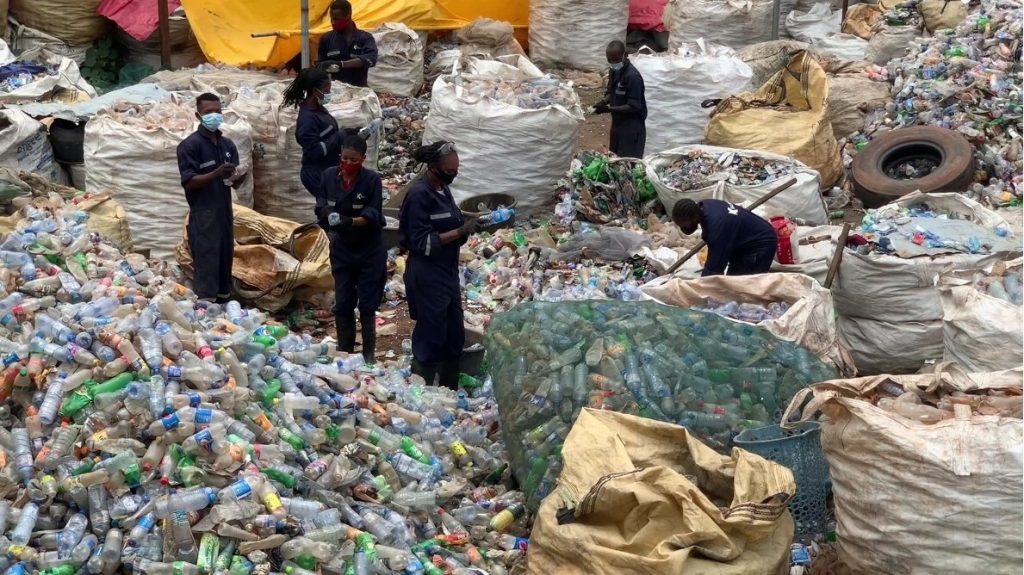In Nigeria, the start-up Kaltani will install 20 plastic waste collection units in 10 states of the country in order to expand its recycling activities in its main plant based in Lagos. The project will be financed through a recent round of funding from several undisclosed investors.
The $4 million (N1.6 billion) deal will allow the company founded by Nigerian engineer Obi Charles Nnanna to increase its recycling capacity to more than 15,000 tonnes of plastic waste per year. This will both create 500 jobs within the start-up, as well as reduce the plastic pollution affecting the soil and water bodies in Lagos State.
The Kaltani plant converts plastics into polyethylene terephthalate (PET) flakes, then into Polypropylene (PP) pellets that are ultimately sold to consumer goods companies for thermoforming, sheeting, packaging, bottling and fibre applications. “The world desperately needs workable and scalable solutions to the plastic pollution crisis that is degrading the environment, our oceans, aquatic life, the air we breathe and our health,” says Obi Charles Nnanna.
Read also:NIGERIA: Freetown Waste recycles used tires for flooring, and it works
While Nigeria produces 200,000 tonnes of plastic waste per year, two-thirds of which ends up in landfills, sewers, beaches and water bodies, the Global Partnership for Action on Plastics (GPAP) estimates that the West African country could reach 523,000 tonnes by 2022. In this context, the US soft drink company Coca-Cola and the federal government through the Nigeria Climate Innovation Centre (NCIC) will recycle 8,910 tonnes of waste per year in six Nigerian states.
Benoit-Ivan Wansi
